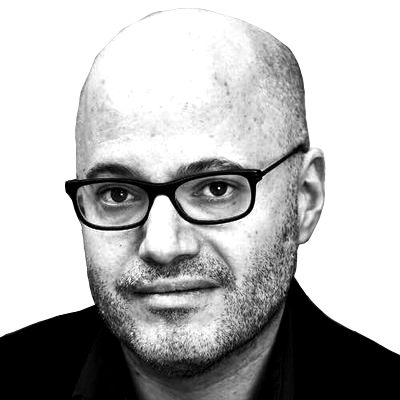“I feel stupid and contagious / Here we are now, entertain us.” The last thing Kurt Cobain meant to do when he wrote these lines—from the lyrics of “Smells Like Teen Spirit”—was define a cultural moment. But then, not wanting to define a cultural moment was a defining feature of that moment.
If you happened to go to college, read books, listen to music, sleep with the wrong person, then the right one, send your first e-mail, and figure out who you were while Alanis Morissette was misdefining “ironic,” you could be a 90s person. If you were a teenage girl, you might have seen Titanic multiple times to swoon over Leo. You might have voted for Bill Clinton—first with enthusiasm, then with cynicism—only to see his popularity peak as he was impeached. You might not have cared about a certain O. J. Simpson until, one day, he was driving that white Bronco to God knows where and he became the most important person in your life.

If you happened to be a college student in a love triangle, your trajectory may have been influenced by the 1994 film Reality Bites, where Winona Ryder must choose between the earnest, successful, dopey Ben Stiller and the brilliant, cutting, underachieving slacker sex symbol Ethan Hawke. As a 90s person, you must live with the consequences of choosing Hawke—not the actor, but the idea that a guy who reads Heidegger in a diner, defines “ironic” correctly, and goofs around with a band called Hey, That’s My Bike will complete you.
You might think the 90s began on January 1, 1990, and ended on December 31, 1999, or you may believe in “the Long 90s,” starting with the fall of the Berlin Wall and ending with 9/11. According to Chuck Klosterman’s The Nineties: A Book, both of these views are wrong.
If you happened to go to college, sleep with the wrong person, and send your first e-mail while Alanis Morissette was misdefining “ironic,” you could be a 90s person.
Seinfeld, one of the most popular sitcoms of the decade, was a show about nothing, and in Klosterman’s book there is a lot of nothing to reconsider. It is a remarkable fact that Gen X, named after a short-lived Billy Idol band, not only continues to wear this label but then gives way to Gen Y and Gen Z, as if the human imagination could not extend beyond the juvenilia of Billy Idol.
Twenty years later, it’s remarkable how wrong we were about nearly everything in the 90s, an era when everything we thought we knew turned out to be wrong. The Internet didn’t begin when those AOL discs appeared in your mailbox. It took over when no one was looking, a time, Klosterman tells us, that was never recorded. Bill Clinton said, “I feel your pain” just once, and not the way you thought.
Seinfeld may have been about nothing, but Pulp Fiction was a movie about how cool it is to watch movies. Whether or not you appreciated American Beauty, Klosterman’s description of it sounds so ridiculous, it will make you laugh. When the Columbine massacre occurred, journalists told us the footage was “surreal,” but they were wrong. “Times change, because that’s what times do,” Klosterman tells us.

“There are decades where nothing happens; and there are weeks where decades happen.” This quote, borrowed from Lenin, leads to Klosterman’s stance on when the 90s actually began: upon the release of Nirvana’s Nevermind on September 24, 1991. “Nevermind is the inflection point where one style of Western culture ends and another begins,” he writes, “mostly for reasons only vaguely related to music.” This was not like Subaru marketing a five-door hatchback. Nirvana changed the way we feel, the way we experience beauty, even when the songs seemed to be about nothing, but were really about everything.
Klosterman refrains from talking about himself in the book, yet in a footnote he shows his hand. Born in 1972, his “experience across the 90s was comically in line with the media caricature of Generation X,” he writes. “I am comfortable with my service as a demographic cliché. It’s one of the few things in my life I got right.”
Klosterman’s remarkable book made me rethink my decade and rethink myself. I was born in 1973. I, too, was transfigured by the music and the suicide of Cobain. I saw Reality Bites in the movie theater and was a Hawke person, so much so that I imagined him with a soul patch reading the Audible version of this book.
The devastating ending of Klosterman’s book, with the frivolous headlines on the newspapers that hit the ground when the 9/11 hijackers boarded, makes one wonder what we are getting wrong now. In 20 years, the Gen Z Klosterman will write the definitive book about whatever this decade is. We were worried about a global pandemic, cancel culture, and a racist game-show host turned president disenfranchising voters and attempting to overthrow democracy. We were so innocent then.

David Yaffe is a professor of humanities at Syracuse University. He writes about music and is the author, most recently, of Reckless Daughter: A Portrait of Joni Mitchell


